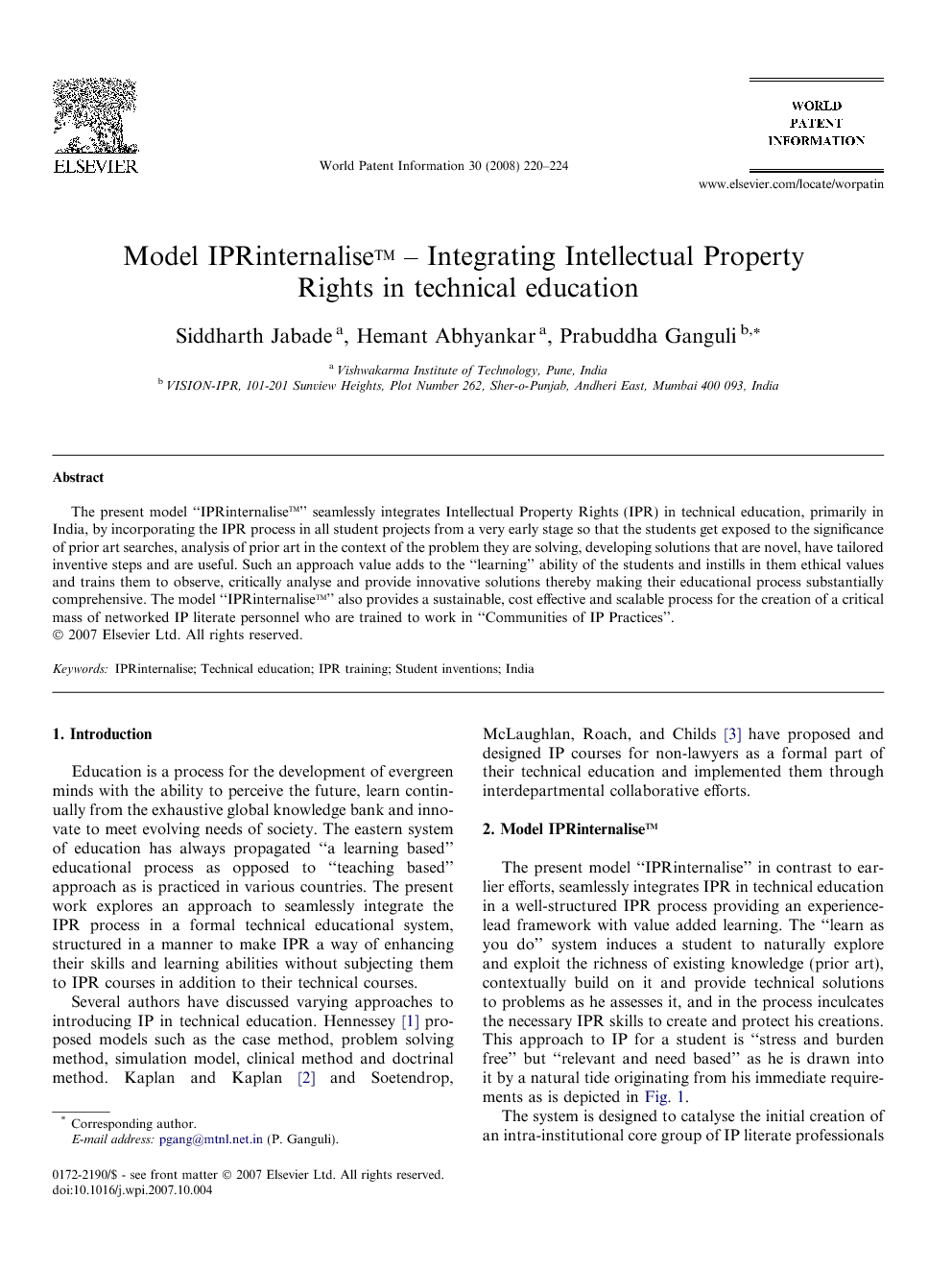ترجمه فارسی عنوان مقاله
مدل IPRinternalise ™ - یکپارچه سازی حقوق مالکیت معنوی در آموزش های فنی
عنوان انگلیسی
Model IPRinternalise™ – Integrating Intellectual Property Rights in technical education
| کد مقاله | سال انتشار | تعداد صفحات مقاله انگلیسی |
|---|---|---|
| 16704 | 2008 | 5 صفحه PDF |
منبع

Publisher : Elsevier - Science Direct (الزویر - ساینس دایرکت)
Journal : World Patent Information, Volume 30, Issue 3, September 2008, Pages 220–224
ترجمه کلمات کلیدی
تحصیلات فنی - آموزش - اختراعات دانشجویی - هندوستان -
کلمات کلیدی انگلیسی
Technical education, IPR training, Student inventions, India,

